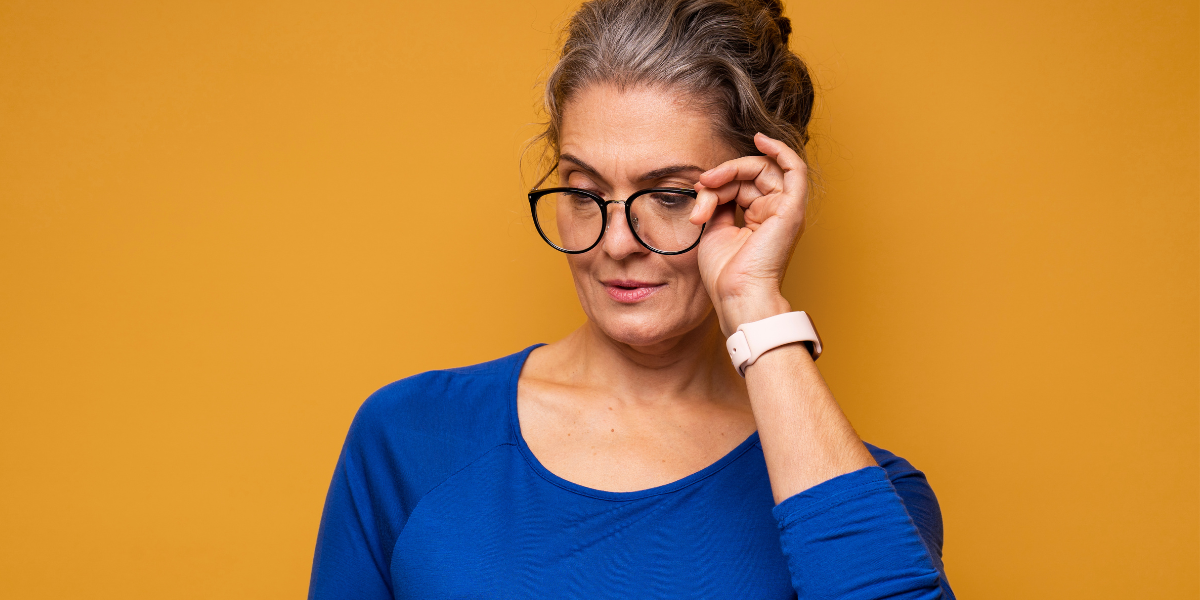To see is to believe – that’s right.
But more than just knowing if something is real, seeing also helps us with how we work, move, and find what we need. It’s a need, and having poor vision can be a daily source of frustration.
If your sight is not as good as it used to be, you’re not alone.
Signs and Symptoms of Sight Problems
Cataracts, macular degeneration, glaucoma, and diabetic eye disease are the leading causes of vision loss.
Many age-related eye conditions, however, have no visible symptoms because they develop over time. Because vision changes can occur gradually, even the person experiencing them may not notice.
There are some noticeable signs and behaviours that indicate they may be suffering from an age-related eye condition. Here are some:
- Watery or cloudy vision
- Having difficulty recognising distant family members
- Inability to see objects in one’s peripheral vision
- Squinting to focus on close-range objects such as books, puzzles, and television
- Need for brighter light for reading or detailed work
Take note of the following visual cues too if they are mentioned:
- Vision blurred or hazy
- Bright spots or halo effects in vision
- Reduced colour brightness and increased blurriness of printed words
- Floater (tiny specks or cobwebs floating across the field of vision)
- Eye pain, dryness, and a headache
If you notice any of these signs and symptoms, schedule an eye exam to have them investigated further. In most cases, the earlier an age-related eye condition is identified, the sooner it can be treated and prevented from worsening.
How to Take Care of Your Eyes
1. Check Your Eyes Regularly. Your optician can screen for cataracts, macular degeneration, glaucoma, and other degenerative eye illnesses that are common in older people. Many people are unaware that an eye exam can detect the onset of other general health issues such as diabetes, hypertension, and high cholesterol. If getting out and about is difficult for you, ask your doctor or optician if a home visiting optician is available in your area.
2. Wear Sunglasses. Direct sunlight can harm your eyes, cause cancer, and cause other health problems. Bring sunglasses with you to decrease the quantity of direct sunshine that your eyes are exposed to. If you wear prescription glasses, consider using prescription sunglasses to safeguard your eyes. You won’t have to compromise between seeing clearly and keeping your eyes protected from the sun.
3. Consume Nutritious Food. Certain meals can help you see better. Vitamin C-rich foods (kiwis, strawberries, red bell peppers, papayas, and oranges), as well as antioxidant-rich, beta-carotene-rich, and lutein-rich foods (sweet potatoes, carrots, spinach, squash, broccoli, and kale), can help prevent age-related macular degeneration.
4. Quit Smoking. Smoking is bad for your eyes; studies suggest that it raises your risk of age-related macular degeneration, glaucoma, and cataracts. Cigarette smoke irritates the eyes, making dry eyes worse.
5. Go for Indoor Lights. While dim lighting can make for a romantic dinner, it can also put a lot of pressure on our eyes. If you watch a lot of TV or read inside your room, try to keep the area well-lit. This will assist your eyes in focus and minimise eye strain significantly.
6. Take an Eye Break. If you spend a lot of time watching TV or working on a computer, take frequent breaks. Every 20 minutes, have a 20-30 second break. This will enable your eyes to relax even for a short period of time.
7. Exercise. Improved blood flow increases the quantity of oxygen that circulates throughout your body, including your eyes, improving eyesight and removing pollutants from your system. As you get older, any form of exercise is beneficial. It doesn’t have to be strenuous, so don’t be afraid to incorporate walking, yoga, and other low-impact activities.
For seniors, vision problems don’t just deprive you of watching your favourite films, seeing your wonderful garden, or recognising your old friends. It can also lead to a higher risk of falls, driving accidents, and incorrect use of medications – which can lead to bigger health problems.
While it is inevitable to have a poor vision as we age, there are still little steps that we can take to prevent them from happening too soon.
Our eyes serve as the window to the world. Simply follow Brightlife’s Seniors Alliance’s tips and see the changes yourself.

